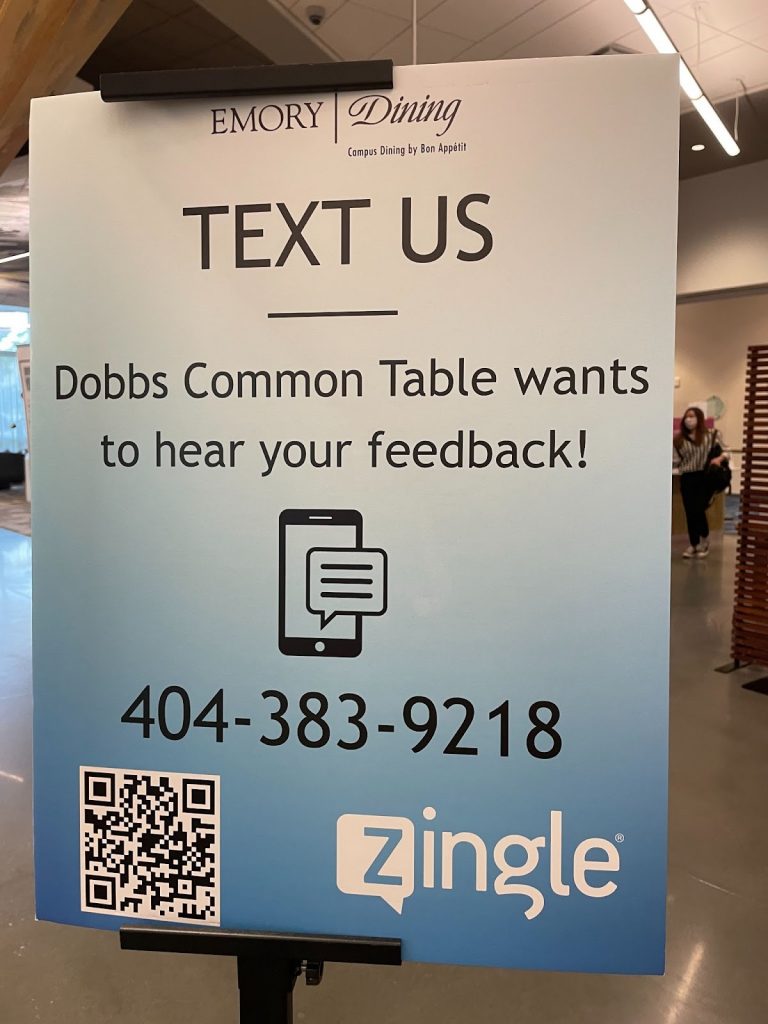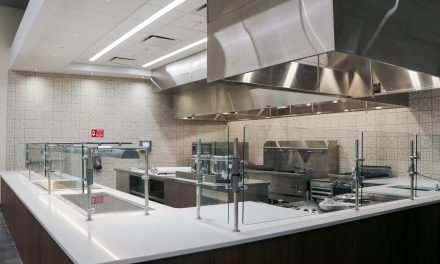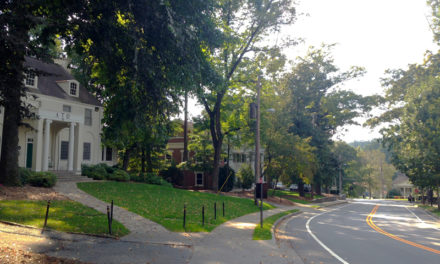Have you ever wished you could talk to the Dobbs Common Table (DCT) staff? Ask for mac and cheese Mondays or a refill on Cocoa Puffs? As of mid-September, the DCT is just a text away. Using Zingle, a text messaging system for businesses, cafes across campus are letting students provide direct feedback to food services.
With this new system, students can scan a QR code at various locations near the DCT that connect them to a text line with staff and managers. Cox Dining Hall also implemented a texting system, though the project was started at and primarily focuses on the DCT because the dining hall attracts more visitors.

(Chaya Tong/The Emory Wheel)
Texts sent to the DCT go to a group of 10 managers including Michelle Reuter, director of culinary operations support, Sam Baldwin, quality assurance supervisor and Tarun Kapoor, general manager. Based on the content of the message, the appropriate person responds.
“All compliments and all critiques are addressed at the meetings in the morning where we get together and talk about the food, food safety, general work safety, and we talk about those comments and whether they were good or bad,” Baldwin said. “If they are good, we pass on the compliments to the people that work at that station. If it’s not a very good comment, we try to address it and try to make it better.”
This means that students can expect real time responses to their messages, and their feedback gets addressed. Students have already begun to take advantage of this tool.
“I feel heard, and I really like how responsive they are,” Anika Kapur (25C) said. “It really just increased my dining experience. In the future, if I have any concerns or questions, I’ll feel more comfortable about sharing my views with them because they are so approachable.”
However, while some students are happy to have their voices heard, some worry that their texts are getting lost or forgotten about over time.
“I wish my texts would show them where/how they could be more proactive and make for a better student experience,” Michael Sorkin (25C) said. “But they seem to deal with my texts on a case-by-case basis and not work on improving themselves in the long run. I will text them again because that’s the only way to get things fixed.”
On average, the DCT gets four texts a day. Some feedback for the managers, though, is more useful than others. Kapoor and the other managers are hopeful that as the texting system continues to grow, it will focus on systemic changes rather than everyday challenges.
“I want to encourage students to use this as a way to communicate constructive feedback rather than stuff like ‘there are no forks,’” Kapoor said. “If it is constructive feedback like ‘I need cereal in the cereal bar’ then that can go in the text chain so we know what to order for our next shipment.”
Because of the volume of people the DCT serves, items are ordered in bulk. With the texting system, student input can determine what and how much the DCT orders.
But the initiative doesn’t end here. The DCT is in the process of rolling out a “You Spoke, We Listened” campaign to further support student communication. While the program allows students to express their opinions and influence their dining experience, it also allows the DCT to grow and improve. Needless to say, the program is here to stay.
“We will continue this program,” Reuter said. “Our chefs and guest service team appreciate the encouragement from the positive feedback, as well as the opportunity to ‘level up’ with suggestions on what would make us better.”
Chaya Tong (she/her) (25C) is from the San Francisco Bay Area, majoring in English and biology. Outside of The Wheel, she enjoys singing in her acapella group, working with Fair Fight U and serving on the University Senate Campus Life Committee.






